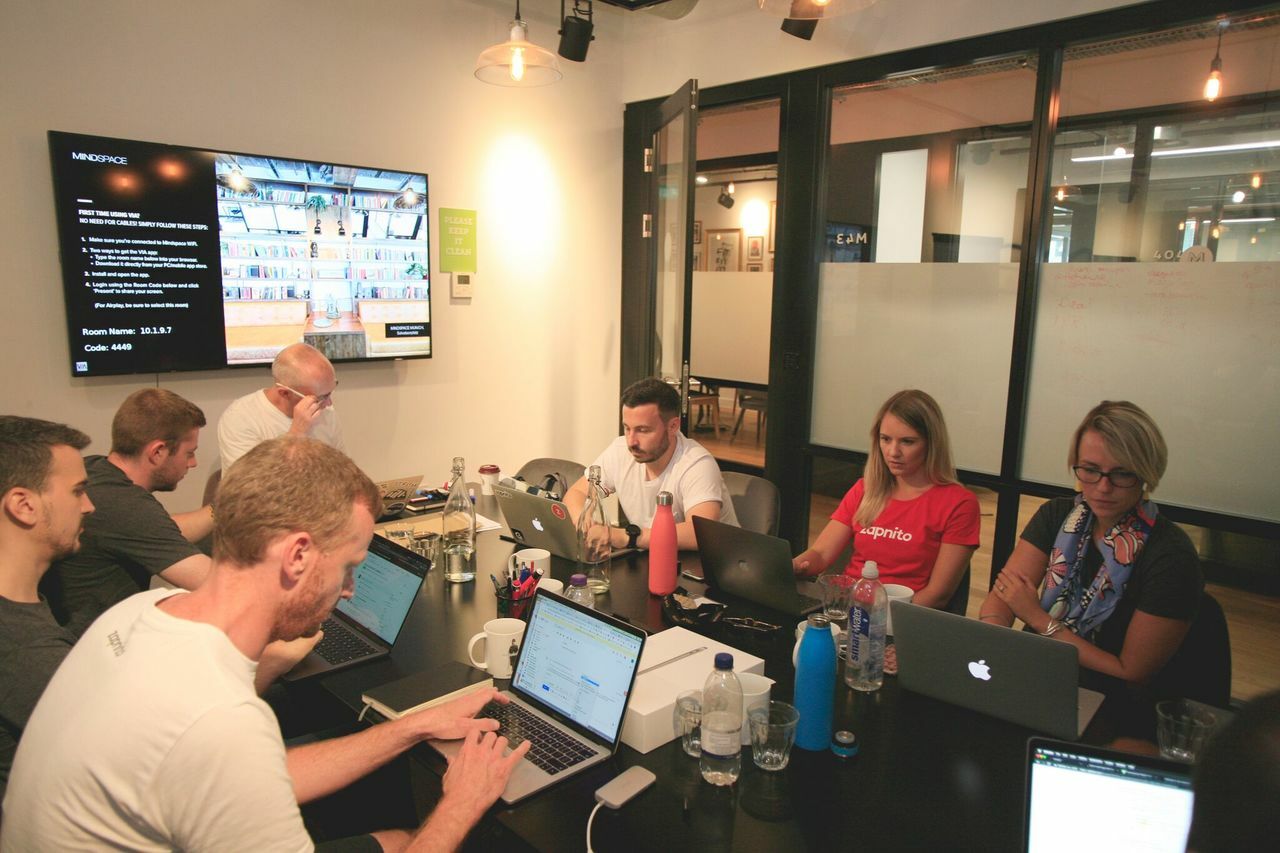Why I’m Committed To Maintaining A Startup Culture As My Company Grows

This was first published on the Forbes Technology Council on the 8th September 2020 and can be found here.
My co-founder, Jon, and I both come from very corporate backgrounds. Think suit and tie, death by PowerPoint and mind-boggling hierarchy. Because of this, when we started our company, we set out to establish a startup culture from the very beginning. The ability to innovate, be adaptive and agile, and maintain a flat and open team environment are all things that have helped us get to where we are today.
It’s fair to say that in the last few strange months, because of this culture, startups were in a better position to pivot and adapt quickly. To survive and thrive in our ever-changing future, big corporations have to follow suit. Building this kind of agility into all operations can give a smoother transition when unexpected events do occur, as seen with the global lockdown, entire industries grinding to a halt and the ongoing uncertainty surrounding when or if business will get back to normal.
I think we’re all realizing now that the past few months weren’t just a temporary hiatus. This is a long-term reality. Now, as we look at the future, we’re taking steps to maintain the culture we worked so hard to cultivate — but it has to adapt to having less face time, a more disparate team, and a less-defined work-life split.
Here are some of the ways we are striving to achieve this.
Remote-Plus
Like many, our team has gone almost entirely remote (two-thirds of U.K. workers are planning to continue to work remotely after the crisis). Renting office space no longer made sense, particularly with an increasingly international team (we have employees based in Portugal and California).
We bookend the week with some face time — a weekly showcase call to touch base and run through our wins, challenges and focus for the week. We use that time to shout out members of the team who have gone above and beyond, and it kick-starts the week with a positive tone. We close the week with a Friday happy hour, which, as you can imagine, is more informal and relaxed. Both of these keep us connected and feeling like a team.
Working from home without colleagues to chat with spontaneously can become lonely very quickly. There’s no watercooler chat and no catching up on holidays or family news. We also have to remember that we’re living, breathing, 3D beings — not just moving squares on a laptop screen.
To address this, we meet at least once a month for company "all-hands" meetings and team workshops — and a social outing once a month to interact more extensively. It’s vital to continuously build internal relationships when face-to-face. Zoom drinks can only go so far. This offers the best of both worlds, knitting together a disparate team with focused work and social time together.
Team Commission
With every new customer signed, we each receive a team commission. To reflect our flat structure, it’s the same across the team (with the exception of the sales team, who have a different commission structure).
Why do we do this? Because every team member contributes every day to bring in new customers, and we want to share the joy of closing a deal when it happens. It motivates the team to do their best work to further the company’s goals, and it’s transparent, so employees can see what revenue we’re generating. Vitally, it shows every employee that their hard work, role and presence is important and valued.
Mindful Coaching As A Benefit
Working from home has brought us new challenges to navigate, such as the lines between work and rest blurring and increasing the likelihood of burnout. Some 42% of workers report feeling more stressed and unable to unplug because of the Covid-19 work-from-home shift. Plus, it’s a more stressful time overall. We’re not just working from home; we’re working in a pandemic, with uncertainty and fear, a looming recession and a need to balance family commitments such as home schooling with work responsibilities. It’s becoming a real mental health burden.
I’ve been seeing a mindfulness coach for a while and have found it transformational in giving me techniques to manage stress and avoid burnout and approach life (and work) with a calm outlook. So, we’ve introduced this as a benefit for the team, and many of them have taken advantage of it.
Having access to mindful coaching can help team members turn to someone who can offer practical methods to manage workload, stress and everyday anxieties. They’re an impartial person outside of the business who acts as a sounding board and trusted advisor. And they can help remind each employee to maintain a healthy balance between work and life.
Moving Forward
As we face the new normal, our original commitment to the company culture hasn’t changed. It has always been to create an environment that my co-founder and I would want to work in. I would be remiss not to say that we’ve had bumps in the road with our culture.
We are still learning, and culture is not designed — it creates itself. With the right people and values, it can be formed and led, but it’s never something that can be manufactured. It is also constantly shifting, and the pandemic was one huge shift for all of us. It’s not over yet; there are plenty of changes on the horizon, both predictable and unknown. But with our startup culture goals as a way-finder, we — and other companies like us — can navigate every eventuality and remain innovative, open and agile.





To access please sign in or register for free
If you are a registered user on Zapnito Knowledge Hub, please sign in